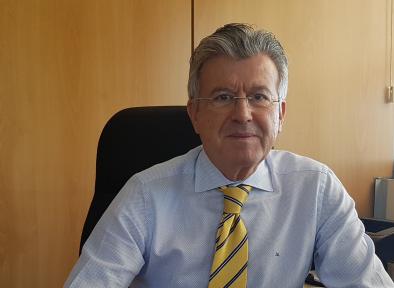

Juan Ramírez (Fimpa): “The return to normality will boost market growth”

Juan Ramírez, President of the National Federation of Automatic Door Manufacturers, Installers and Servicers (FIMPA), states in the following interview that the return to normality will boost demand and market growth. But he also warns of a shortfall in the qualified personnel required by installation and maintenance companies.
The sector has been recovering over the course of the year, especially since the end of the state of emergency was declared last May. For industrial, commercial and garage doors, this recovery has been most evident in the residential subsector, where refurbishment is playing an important role. Recovery has been slower to get under way in the industrial subsector.
Automatic pedestrian doors - whose sales have suffered since the beginning of the pandemic due to the closure of so many hotels and tourist and commercial establishments - are also seeing growing demand since the end of the state of emergency and the uptick in activity in these types of establishments.
So, can we say that a clear recovery can already be seen for the sector in the last quarter of this year?
We’ve just started the last quarter and sales are similar to the previous quarter. If everything keeps going like this, we’re confident that we’ll outperform sales figures for last year and even 2019 in all categories of door.
But there are still some areas of concern that could compromise this recovery. I’m referring here to the price increase that we’re experiencing, which has led to stoppages in 40% of work, according to recently published information from the financial press. This, coupled with a lack of components and rising product prices, could cause sales to slow and, of course, damage companies’ economic performance and turnover.
What elements will be central to recovery in the coming year and what challenges do you foresee?
The recovery is expected to continue next year and may even accelerate if the financial institutions’ macroeconomic projections are correct. It’s clear that the return to normality, in sectors that have stalled or experienced restrictions and constraints on their activity, will boost demand and market growth. But it will also be necessary for the shortfalls mentioned above to be reduced or eradicated. In terms of the threats to the sector, these are the challenges.
Alongside this, companies will need to find solutions for keeping their businesses profitable in the face of rising prices for products, transportation and services, and overcome the difficulties in shifting their cost increases to the market.
What are the industry’s needs in terms of qualified personnel?
One aspect that is now apparent and becoming structural in nature is a shortfall in qualified personnel, with demand - particularly from installation and maintenance companies - not being met. If a solution is not found soon, this will become a serious threat to the growth that’s been forecast.
It’s a tragedy that in a country with more than 3 million unemployed people, we can’t meet the demand for workers such as welders, electricians, electro-mechanical technicians, fitters and other specialists who work in the door sector.
Some associations in Fimpa, Aepa, Afipa, Afipa Murcia and Grecer have proposed the creation of partnership programmes to specific regional administrations with the aim of increasing the availability of these professionals. This has had mixed results, depending on the autonomous community approached.
It’s essential to involve all parties, including the organisations and institutions responsible for vocational training, in order to provide an effective and lasting solution, through the inclusion of specific content in training schemes, in line with the needs of companies. Another important consideration is students’ orientation toward these specialisations, in line with real-world demand for employment in these companies.
Fimpa is proposing to participate in the potential partnership programmes with training centres and companies, contributing to the preparation of course content and channelling trained technicians toward companies.




